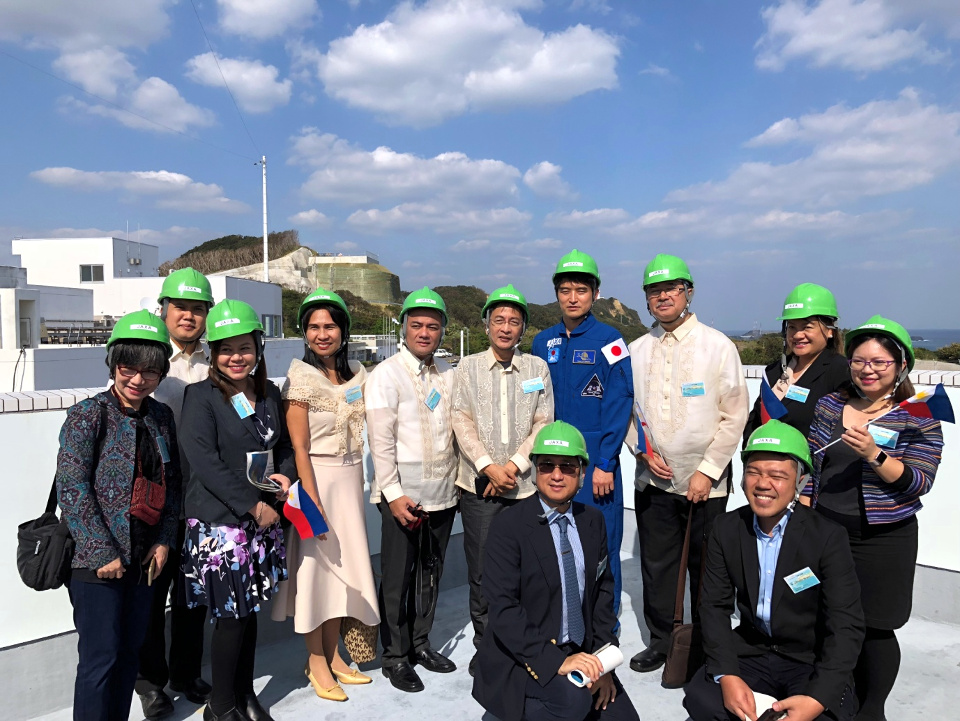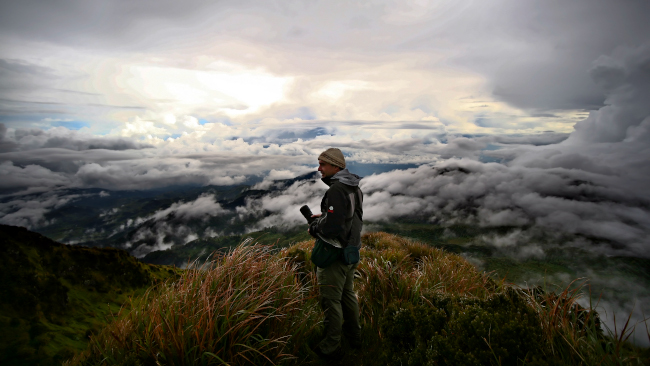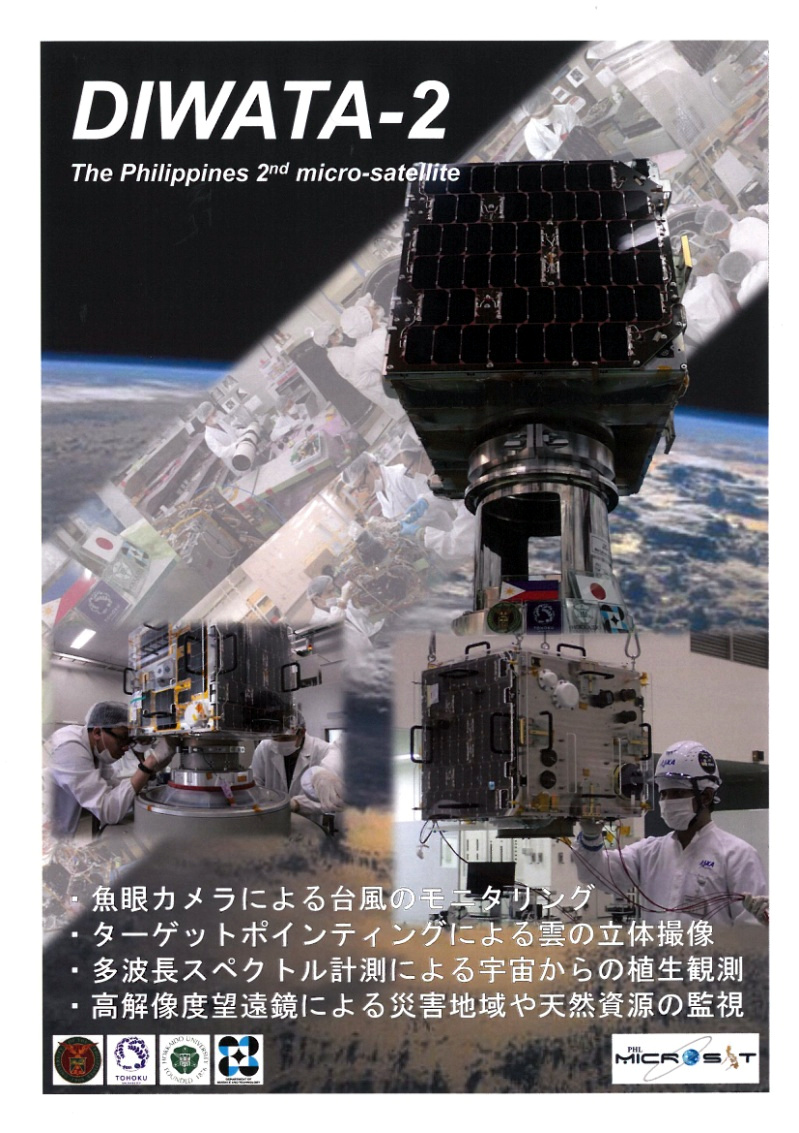Philippine Micro-Satellite “Diwata-2” Successfully Launched Into Orbit

The Philippine delegation, led by Secretary of Science and Technology Dr. Fortunato De la Peña (third from right), witnessed the launching of Diwata-2 Micro-satellite on-board Japan’s H-IIA Launch Vehicle No. 40.
The Philippines’ second micro-satellite, also known as DIWATA-2, was successfully launched into orbit via Japan’s H-IIA Launch Vehicle No. 40 from the Tanegashima Space Center in Kagoshima Prefecture, Japan on 29 October 2018 at 1:08 pm (Japan Time). The DIWATA-2 separated from the rocket at 621 kilometers from Earth about 43 minutes and 19 seconds after lift off.
The DIWATA-2, like its predecessor Diwata-1, was developed by Filipino scientists in collaboration with Tohoku University and Hokkaido University under the Philippine Microsatellites Program (PHL-MICROSAT) of the Department of Science and Technology (DOST).
The DIWATA-2 is a 56-kilogram micro-satellite that carries a space-borne Multispectral Imager (SMI) with liquid crystal tunable filter (LCTF) for environmental monitoring, and a high precision telescope (HPT) for rapid post-disaster assessment.
The DIWATA-2 boasts of upgrades such as deployable solar panels for increased power generation, enhanced resolution cameras, and a sun-synchronous orbit that will allow fixed revisit intervals and a larger area of coverage. It also hosts an amateur radio payload that will enable people in the Philippines to relay messages to any part of the country through ham radio.
The Philippine Earth Data Resource Observation Center ground station at the DOST-Advanced Science and Technology Institute (DOST-ASTI) in Diliman, Quezon City will handle satellite control, operation and acquisition of experimental data from DIWATA-2.
The Philippine Delegation who witnessed the launching of DIWATA-2 was led by DOST Secretary Dr. Fortunato de la Peña, University of the Philippines Chancellor Michael Tan, Post’s Deputy Chief of Mission Eduardo M.R. Meñez, and DOST-ASTI Acting Director Dr. Joel Joseph S. Marciano, Jr.



































